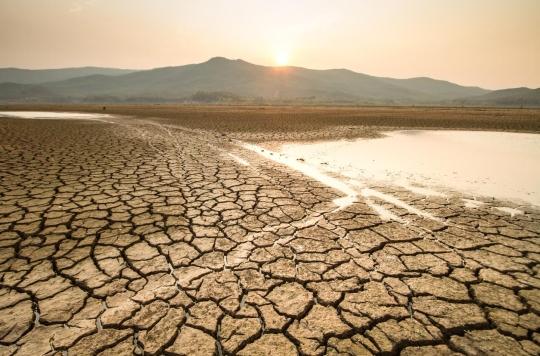According to a new study conducted over fifteen years in more than 1,800 Brazilian cities, the increase in cases of chronic kidney failure of undetermined origin could be linked to the sharp rise in temperatures observed in certain tropical regions.

- We talk about chronic kidney disease when we see a more or less significant loss of kidney function: the latter permanently and irreversibly lose their ability to properly filter the body’s blood.
- The two main identified causes of chronic kidney disease are diabetes and high blood pressure.
Are the extreme temperatures recorded in certain regions of the globe linked to the explosion of cases of chronic renal failure of undetermined origin?
This is confirmed by a new study carried out over fifteen years in nearly 2,000 Brazilian cities by the University of Sao Paulo and published in The Lancet Regional Health Americas. The Swiss site The weather and the International mail echo it.
According to its authors, the global warming observed for several decades could be one of the causes of a new chronic kidney disease. First identified in South America, Sri Lanka and India, it had until now been called “chronic renal failure of undetermined origin”.
A correlation between rising temperatures and kidney disease
To reach this conclusion, the researchers analyzed hospital admissions recorded in 1,816 Brazilian cities between 2000 and 2015. A total of 2,726,886 hospitalizations for kidney disease were recorded. Among them, more than 202,000 cases are linked to global warming.
According to Professor Yuming Guo, who led the study, every 1°C increase in the average daily temperature is followed by an increase of almost 1% in kidney disease. The most affected people are women, children under 4 years old and people over 80 years old.
For the authors of the study, “repeated exposure to extreme temperatures can cause, through dehydration, episodes of acute renal failure which in turn can cause the onset of chronic disease”. They further note that the associations between temperature and kidney disease were strongest on the day of exposure to extreme temperatures, but remained present for one to two days after exposure.
Necessary government policies
These conclusions provide, according to the authors “strong evidence that more policies should be developed to prevent heat-related hospitalizations and mitigate climate change”. They advise urgently integrating interventions into government policy on climate change, particularly targeting vulnerable people.
“In addition, attention should be paid to low- and middle-income countries like Brazil, where reliable heat warning systems and preventive measures are still needed”concludes Professor Guo.

.

















